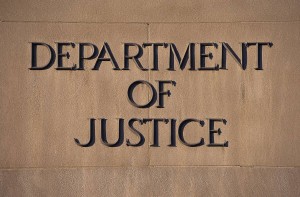TEXAS
A Louisiana man pleaded guilty Tuesday to conspiring with members of the Aryan Circle (AC) and others to sell methamphetamine.
 He is the fourth and final defendant charged in the conspiracy to enter a guilty plea.
He is the fourth and final defendant charged in the conspiracy to enter a guilty plea.
According to court documents, Shane Louque, 46, of Gonzales, purchased substantial quantities of methamphetamine – at least two kilograms – from an AC member based in the Houston area over a number of occasions in 2016.
Louque then personally distributed the methamphetamine to other buyers in Louisiana.
 While Louque himself is not known to be an AC member, the drug conspiracy was uncovered as part of Operation Noble Virtue, an investigation into the AC that has targeted AC leadership.
While Louque himself is not known to be an AC member, the drug conspiracy was uncovered as part of Operation Noble Virtue, an investigation into the AC that has targeted AC leadership.
Previously entering guilty pleas as part of this conspiracy were Jeremy Klintman, 38, of Texas; Eulalio Torres-Cadenas, 43, of Mexico; and Breanna Beckley, 40, of Texas.
Louque plead guilty to conspiracy to possess with intent to distribute at least 500 grams of a mixture or substance containing methamphetamine. He is facing up to life in prison. A sentencing date has not yet been set.
The AC was established in the mid-1980s within the Texas state prison system (TDCJ) after a period of turmoil within the Aryan Brotherhood of Texas (ABT) resulted in rejected and ex-ABT members creating the AC, according to published reports.
The AC was relatively small in comparison to other prison-based gangs, but grew in stature and influence within TDCJ in the 1990s, largely through violent conflict with other gangs, white and non-white alike, officials stated.
In recent years, the AC’s structure and influence expanded outside of prisons to rural and suburban areas in numerous states.
Court records further indicate the AC enforces its rules and promotes discipline among its members, prospects and associates through murder, attempted murder, assault and threats against those who violate the rules or pose a threat to the organization.
Members, and oftentimes associates, are required to follow the orders of higher-ranking members without question, according to court documents.
The criminal acts charged in the indictments described above include shootings, stabbings, beatings, and “patch-burnings,” which are violent attacks that result in removal of a victim’s gang tattoo.

